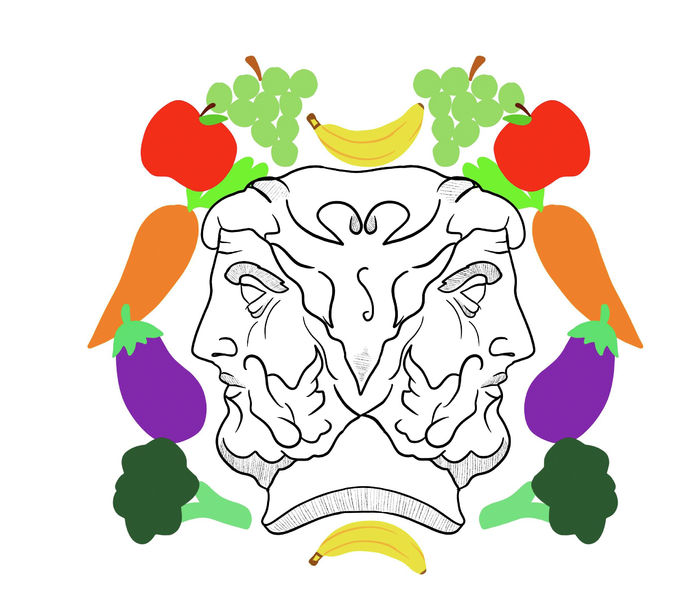Switchboard’s take on ‘Veganuary’ and global food security, with the Cambridge University Vegan Society
Switchboard presenter Alfie Barrishi sat down with the Vice President of the Cambridge University Vegan Society to discuss the phenomenon of ‘Veganuary’

Spurred on by growing environmental and ethical concerns about the meat and dairy industries, the Guardian recently reported that over 400,000 Brits took part in Veganuary this year. Galia Shomron spoke to us about the activities that the Cambridge University Vegan Society have been putting on to promote Veganuary in the local community, such as ‘vegan intro meetings… that are specifically for people that are trying to transition to veganism and need tips’, and vegan ‘potlucks’ that the society runs ‘throughout the year’.
We discussed different forms of activism, and she explained why she advocates for a softer approach to activism. ‘We don’t think it’s effective to shame and embarrass people into going vegan’, Galia said, ‘because people just don’t like being embarrassed. You should give people the option to be watching these videos, meet people where they’re at and treat them with kindness.’
Galia went on to discuss the benefits of reduced meat consumption, saying that ‘even just cutting meat out one day a week actually helps so much’, and when asked to pitch veganism, she said ‘I would pitch veganism as something that is actually really fun – it gets you creative about food, and it makes you feel like you’re making a difference, especially with the climate crisis that is so prevalent at the moment.’ Joseph Poore, at the University of Oxford, agrees, arguing that “A vegan diet is probably the single biggest way to reduce your impact on planet Earth, not just greenhouse gases, but global acidification, eutrophication, land use and water use.”
We also spoke to Jess Molyneux, a second year student at Jesus College and participant in Veganuary 2020. She told us about the dietary changes that she made during Veganuary, saying that cutting out cheese was ‘difficult’, but that ‘nuts and nut butters became a big staple’ as alternative protein sources. She said that she feels ‘good in the sense that I’ve done a good ethical thing’ and praised the efforts of the catering staff at her college, saying that she’s been ‘really impressed by the vegan provision. They’re quite creative with what they do with it and the vegan option is always cheaper, so it does feel like you’re being rewarded.’
She also commented on the potential for restrictive diets to become veils for eating disorders. ‘For anyone who’s had any kind of disordered eating, absolute rules are quite dangerous. I think it’s very easy to say “I can’t have that cake because I’m vegan” and no one really takes any notice, and so I just think we need to remember that when looking at friends who are going vegan, that we’re making sure of the reasons why they’re doing it.’ Looking into the long term, Jess said that she’s going to continue with a mostly vegan diet, joking that ‘it helps me make a decision on a menu’.
To get a holistic perspective on the sustainability of veganism, we were also fortunate enough to interview Dr Shailaja Fennell, one of the members of the Cambridge Forum for Sustainability and the Environment, and a lecturer in Development Studies at Jesus College. While discussing the sustainability of vegan lifestyles in developing countries, she noted that ‘even in a country like India, it’s only 30% of people who are recorded as vegetarian. It would be hard to answer whether veganism would work in developing countries because there isn’t a history of not eating any animal products.’
However, she also noted its benefits. ‘What is good about veganism is, in a way, people are saying, “well, what should I eat and what should I not eat?”’. She went on to say that ‘The value of veganism from the point of view of climate sustainability is that you move away using land to produce meat. If we did not produce meat products, we would certainly reduce our land use, and that would have positive impacts in terms of growing more forests and reducing the impacts of GHGs (Greenhouse Gases)’.
To listen to our interviews in full, this week’s episode on Veganuary and Global Food Security can be found on Spotify, Apple Podcasts, Google Podcasts and all other major podcast platforms where all our episodes from are also available to download. For a full list of the sources and articles used in this week’s episode, please visit the link at the bottom of the article. Each week Switchboard seeks to connect listeners with people in Cambridge with interesting stories to tell. If you have heard any unusual stories from around Cambridge this week, please don’t hesitate to contact us at switchboard@varsity.co.uk
 News / Cambridge University disables comments following Passover post backlash 24 April 2024
News / Cambridge University disables comments following Passover post backlash 24 April 2024 Comment / Gown vs town? Local investment plans must remember Cambridge is not just a university24 April 2024
Comment / Gown vs town? Local investment plans must remember Cambridge is not just a university24 April 2024 News / Fitz students face ‘massive invasion of privacy’ over messy rooms23 April 2024
News / Fitz students face ‘massive invasion of privacy’ over messy rooms23 April 2024 Interviews / Gender Agenda on building feminist solidarity in Cambridge24 April 2024
Interviews / Gender Agenda on building feminist solidarity in Cambridge24 April 2024 Comment / Does Lucy Cavendish need a billionaire bailout?22 April 2024
Comment / Does Lucy Cavendish need a billionaire bailout?22 April 2024






